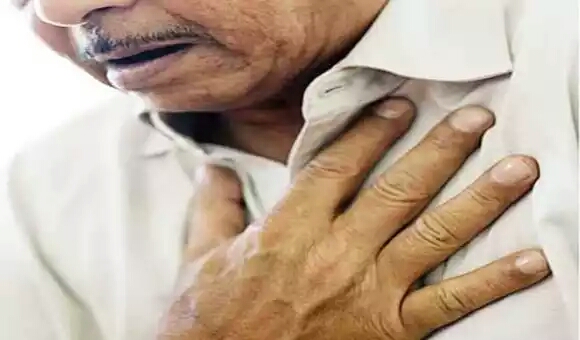
Sleep apnea
When your snoring is broken up by pauses in your breathing, your brain may not be getting enough oxygen. It will send signals to your blood vessels and heart to work harder to keep blood flow going. This raises your risk for high blood pressure, abnormal heart rhythms, strokes, and heart failure. Fortunately, sleep apnea is treatable.
Yellow-orange bumpy rash
Extremely high triglyceride levels can make your skin break out around the knuckles of your fingers and toes and on your bottom. A lot of these fats in your blood may play a role in hardening your arteries, and high numbers are often related to other conditions that put you at risk for heart disease and strokes, too.
Poor grip strength
The strength of your hand may tell you something about the strength of your heart. Research suggests the ability to squeeze something well means a lower risk of heart disease. If it’s hard for you to grasp an object, odds are higher that you have or could develop problems. (But improving your grip strength alone won’t necessarily make your heart healthier.)
Dark spot under nails
If you haven’t banged or hurt your finger or toe recently, little dots of blood trapped under your nail could point to an infection in the lining of your heart or valves, called endocarditis. You can also get these blood specks when you have diabetes, and people with that condition are two to four times more likely to have heart disease and strokes.
Dizziness
Lightheadedness is often a direct result of something wrong with your heart because it isn’t pumping enough blood to your brain. Dizziness could be a symptom of an abnormal rhythm, called an arrhythmia. Heart failure, meaning the weakening of the muscle, can also make you unsteady. Feeling woozy is one of the many lesser-known symptoms of a heart attack, too.
Sexual Problems
Some troubles in the bedroom could mean you have heart disease and a greater risk for a heart attack or stroke. Men with erectile dysfunction may have circulation problems related to high blood pressure or narrow arteries from cholesterol buildup. These blood-flow problems can also lessen a woman’s libido and ability to enjoy sex.
Skin color changes
Blue or gray fingers and toes could be from poor circulation of oxygen-rich blood, often due to a heart defect you were born with or narrowed or blocked blood vessels. A lacy, mottled, purple pattern shows up when bits of built-up cholesterol plaques break off, then get stuck in small blood vessels. You might get bloody splotches just under the skin on the inside of your hands and the soles of your feet when you have endocarditis.
Bleeding gums
Experts don’t totally understand the link between gum disease and heart disease. But studies suggest that bleeding, swollen, or tender gums may lead to trouble with your ticker. One theory is that bacteria from your gums gets into your bloodstream and sets off inflammation in your heart. Having gum disease, which can lead to tooth loss, may also raise your chances of a stroke.
Dark, velvety skin patches
You may find these thick spots, called acanthosis nigricans, in skin folds and creases such as your neck, armpits, and groin when your body has trouble using the hormone insulin. The patches could have skin tags, too. If you aren’t being treated for insulin resistance, metabolic syndrome, or type 2 diabetes, see your doctor for help controlling your blood sugar and protecting your heart.
Trouble breathing
Feeling short of breath can be a symptom of heart failure, an abnormal heart rhythm, or a heart attack. Tell your doctor if you struggle to catch your breath after doing things that used to be easy for you, or if it’s hard to breathe while lying down. Have chest pain, too? Call emergency.
Swelling in lower legs
It happens when you stand or sit for a long time, and it’s also common during pregnancy. Fluid build-up can also stem from heart failure and poor circulation in your legs. Swollen legs could be from a clot that’s blocking the return of blood from your lower limbs to your heart. Call your doctor right away if swelling comes on suddenly.
Fatigue
Don’t always chalk up it up to poor sleep. Heart failure can leave you tired and drained, because the muscle no longer pumps well enough to meet your body’s needs. Watch for other symptoms, such as coughing and swelling, too, since feeling wiped out and weak can be a warning sign of many different conditions, including anemia, cancer, or even depression.
Antalya law firm offers diverse legal services.